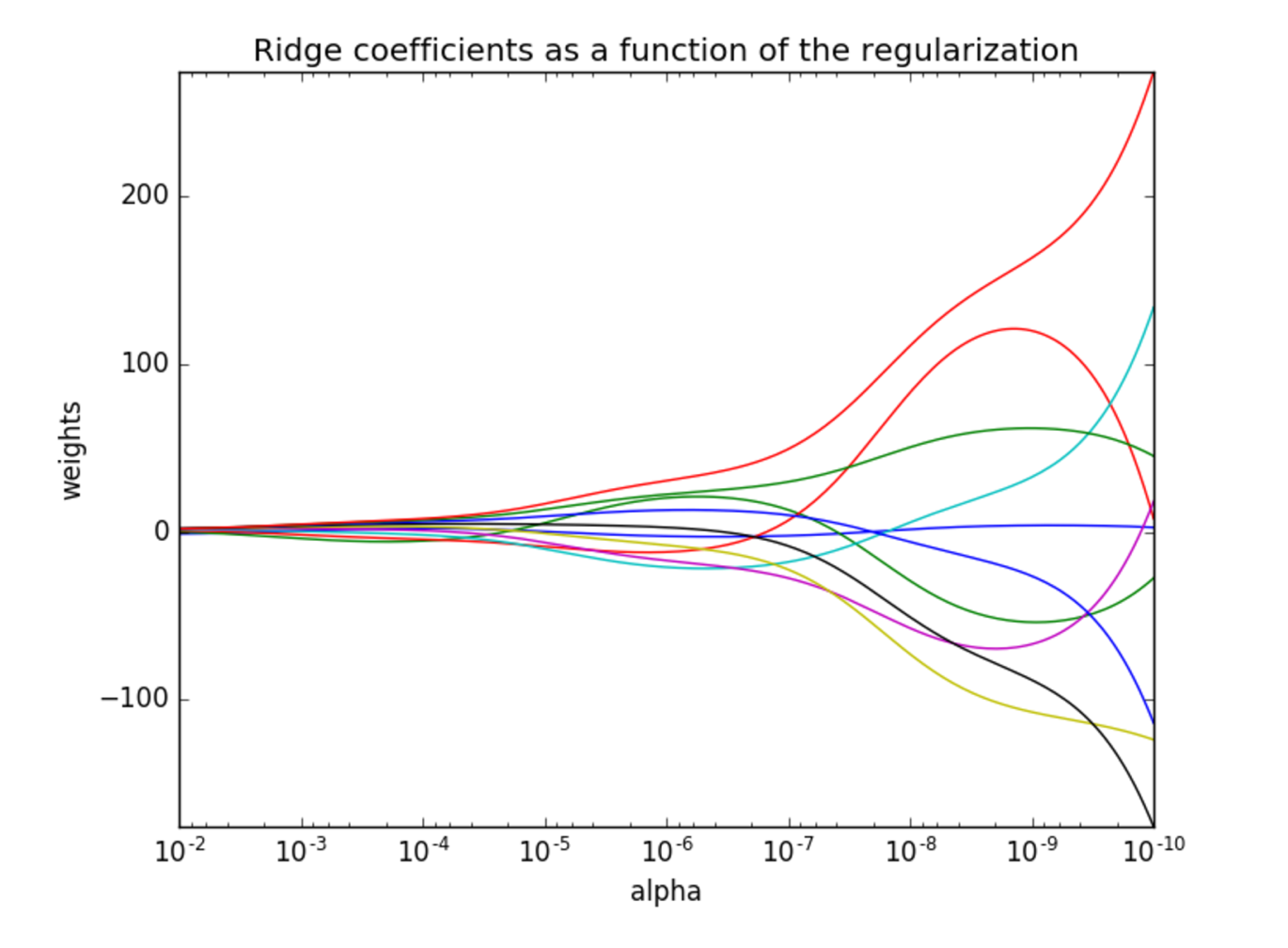1 API
- sklearn.linear_model.Ridge(alpha=1.0, fit_intercept=True,solver=”auto”, normalize=False)
- 具有l2正则化的线性回归
- alpha:正则化力度,也叫 λ
- λ取值:0~1 1~10
- solver:会根据数据自动选择优化方法
- sag:如果数据集、特征都比较大,选择该随机梯度下降优化
- normalize:数据是否进行标准化
- normalize=False:可以在fit之前调用preprocessing.StandardScaler标准化数据
- Ridge.coef_:回归权重
- Ridge.intercept_:回归偏置
Ridge方法相当于SGDRegressor(penalty=’l2’, loss=”squared_loss”),只不过SGDRegressor实现了一个普通的随机梯度下降学习,推荐使用Ridge(实现了SAG)
sklearn.linear_model.RidgeCV(_BaseRidgeCV, RegressorMixin)
正则化力度越大,权重系数会越小
-
3 波士顿房价预测
def linear_model3():"""线性回归:岭回归:return:"""# 1.获取数据data = load_boston()# 2.数据集划分x_train, x_test, y_train, y_test = train_test_split(data.data, data.target, random_state=22)# 3.特征工程-标准化transfer = StandardScaler()x_train = transfer.fit_transform(x_train)x_test = transfer.fit_transform(x_test)# 4.机器学习-线性回归(岭回归)estimator = Ridge(alpha=1)# estimator = RidgeCV(alphas=(0.1, 1, 10))estimator.fit(x_train, y_train)# 5.模型评估# 5.1 获取系数等值y_predict = estimator.predict(x_test)print("预测值为:\n", y_predict)print("模型中的系数为:\n", estimator.coef_)print("模型中的偏置为:\n", estimator.intercept_)# 5.2 评价# 均方误差error = mean_squared_error(y_test, y_predict)print("误差为:\n", error)


